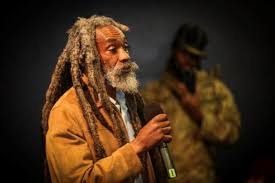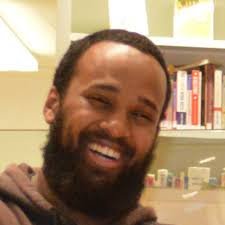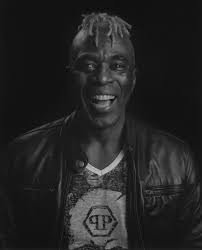- Home
- News & Blogs
- About Us
- What We Do
- Our Communities
- Info Centre
- Press
- Contact
- Archive 2019
- 2015 Elections: 11 new BME MP’s make history
- 70th Anniversary of the Partition of India
- Black Church Manifesto Questionnaire
- Brett Bailey: Exhibit B
- Briefing Paper: Ethnic Minorities in Politics and Public Life
- Civil Rights Leader Ratna Lachman dies
- ELLE Magazine: Young, Gifted, and Black
- External Jobs
- FeaturedVideo
- FeaturedVideo
- FeaturedVideo
- Gary Younge Book Sale
- George Osborne's budget increases racial disadvantage
- Goldsmiths Students' Union External Trustee
- International Commissioners condemn the appalling murder of Tyre Nichols
- Iqbal Wahhab OBE empowers Togo prisoners
- Job Vacancy: Head of Campaigns and Communications
- Media and Public Relations Officer for Jean Lambert MEP (full-time)
- Number 10 statement - race disparity unit
- Pathway to Success 2022
- Please donate £10 or more
- Rashan Charles had no Illegal Drugs
- Serena Williams: Black women should demand equal pay
- Thank you for your donation
- The Colour of Power 2021
- The Power of Poetry
- The UK election voter registration countdown begins now
- Volunteering roles at Community Alliance Lewisham (CAL)
Police and Black community relations getting worse
Seven years on from the civil disturbances sparked in Tottenham 201, by the killing of Mark Duggan by Met Police Officers, public relations between London Black communities and the Met are at an all-time low. This is both a crisis of confidence and policing legitimacy. The uncomfortable truth for London and the rest of the country, is nothing has changed and there has been no improvement in relations since 2011, in fact quite the reverse is true, things have become much worse.
The Annual Public Survey data supplied by the Met every year charts the levels of public confidence in the policing. This data show us that in London, Black and by that, I'm referring to African, Caribbean and Black British communities have fallen of the map.
Our communities have witnessed, according to the data, over the course of the last 10 years, a steadily decline in Black Londoners, levels of public trust and confidence in policing. These are now at precipitously dangerous and unprecedented low levels, in fact I dare to suggest, they are the lowest ever recorded in London's long history.
And it's not just London that has seen a worsening of police/black community relations, during the last year, right across the country, we’ve seen increasing anectdotal evidence of the extent to which the often taught relationships between distrustful black communities and police services plagued with institutional racism, has now deteriorated.
 Late last year, witnessed the brutal arrest, tasering and subsequent charging of Windrush pensioner, 64-year-old Rasta Judah of St Pauls, Bristol, a man who has worked for decades helping improve police community relations.
Late last year, witnessed the brutal arrest, tasering and subsequent charging of Windrush pensioner, 64-year-old Rasta Judah of St Pauls, Bristol, a man who has worked for decades helping improve police community relations.
Then in July of last year, the chair of the London wide and Lambeth’s, Stop and Search Monitoring Groups, Mohammed Hashi now an elected Labour Councillor, was stopped by TSG police on Coldharbour Lane, Brixton.

He was subject to what can only be described, as a fishing trip by a group of seven officers, whose grounds for the search, appeared to him, (and he should know) to be entirely inconsistent, unreasonable and without merit. Mr Hashi was stopped by members of the now Territorial Support Group. (TSG) a Met unit now infamous, amongst Londons black communities, despised for their racism, unprofessionalism and aggression.
Though a formal complaint was made, by Mr Hashi to the police, after investigation the Met, not unsurprisingly, found that the stop and search conducted by their officers, was in their view, entirely legal.
An appeal against that decision, was then lodged by Mr Hashi, with the Independent Office of Police Complaints, who have recently concluded, there is indeed a case to answer. Mohammed, like Ras Judah has spent decades working hard with Lambeth Police Officers in an attempt to improve relations between local police and younger people.

Then in April of this year, Mr Ken Hinds, Chair of the local Haringey Stop and Search Monitoring Group was himself arrested. Mr Hind’s has worked with Haringey Police for over the last 20+ years, in a determined effort, to help improve relations.
After coming across a young black man being stopped and searched in Haringey, Ken stopped and observed the interaction, and when he sought clarity, as to the rationale and reason for the stop from the officers involved, he too found himself subject to police abuse and then illegal arrest. Ken was detained and has subsequently been charged with police assault, and obstruction of the police in the course of their duties, extremely serious allegations.
That seasoned black community representatives, many with long track records of working with the police, can be subjected to such horrific racism, bears witness to the reality faced by young black people, on the streets of London. Alongside the realities of the Windrush deportation scandal, black communities are waking up to the fact we face real racism and massive injustices as a consequence of the growth and return of insidious levels of institutionalised racism within the institution British policing.
The gains made as a consequence of the Stephen Lawrence Inquiry recommendations have been largely lost over the course of the last 25 years, gains that were slowly frittered as a result of deep opposition and resistance, by a variety of senior officers across the country to the labelling of the police as institutionally racist.
They were all too keen to have this label lifted, and unethical politicians, including in 2009, the former Mayor of London, Boris Johnson were all equally keen to declare institutionalised racism in policing was dead. This "unhelpful term" a description used by the then Home Secretary Robin Cook, less than two years after the publication of the report, had been deemed a term that no longer applied to British police services.
Lee Jasper
A Blaksox Sponsor
